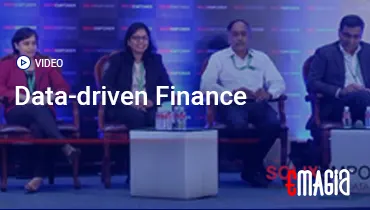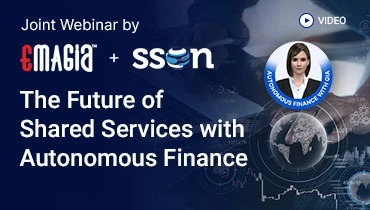Introduction
In today’s complex financial landscape, effective credit management and debt collection are pivotal for maintaining financial stability and ensuring the smooth functioning of businesses and economies. This comprehensive guide delves into the intricacies of credit management and the role of debt collectors, providing insights into best practices, legal frameworks, and innovative strategies to optimize debt recovery while maintaining ethical standards.
Understanding Credit Management
What is Credit Management?
Credit management involves the strategies and processes that organizations implement to grant credit to customers, monitor outstanding debts, and ensure timely repayments. Effective credit management minimizes the risk of bad debts and enhances cash flow.
Importance of Credit Management
- Risk Mitigation: By assessing the creditworthiness of clients, businesses can reduce the likelihood of defaults.
- Cash Flow Optimization: Timely collections ensure that businesses have the necessary liquidity for operations.
- Customer Relationship Management: Balanced credit policies help maintain positive relationships with clients.
Key Components of Credit Management
- Credit Policy Development: Establishing clear guidelines on credit terms and conditions.
- Credit Assessment: Evaluating the financial health and credit history of potential clients.
- Monitoring and Reporting: Regularly reviewing outstanding debts and payment behaviors.
- Debt Recovery Procedures: Implementing strategies for collecting overdue payments.
The Role of Debt Collectors in Credit Management
Who is a Debt Collector?
A debt collector is an individual or agency tasked with recovering unpaid debts on behalf of creditors. They may work directly for the creditor or operate independently.
Functions of Debt Collectors
- Communication with Debtors: Contacting individuals or businesses to remind them of outstanding debts.
- Negotiation: Working out payment plans or settlements that are acceptable to both parties.
- Legal Action: Initiating legal proceedings if debts remain unpaid after repeated attempts.
- Reporting: Providing creditors with updates on collection efforts and outcomes.
Types of Debt Collection Agencies
- First-Party Agencies: These are internal departments within a company that handle collections.
- Third-Party Agencies: Independent firms contracted to collect debts on behalf of creditors.
- Debt Buyers: Companies that purchase delinquent debts at a discount and attempt to collect them.
Legal Framework Governing Debt Collection
Fair Debt Collection Practices Act (FDCPA)
The FDCPA is a U.S. federal law that prohibits abusive, unfair, or deceptive practices by debt collectors. Key provisions include:
- Communication Restrictions: Collectors cannot call before 8 a.m. or after 9 p.m.
- Prohibition of Harassment: Use of threats, obscene language, or repeated calls is forbidden.
- Validation of Debts: Collectors must provide proof of the debt upon request.
- Ceasing Communication: If a consumer requests in writing, the collector must stop contacting them.
State Regulations
In addition to federal laws, many states have their own regulations that may offer additional protections to consumers. These can include licensing requirements for collectors and specific guidelines on collection practices.
Strategies for Effective Debt Collection
Early Intervention
Addressing delinquent accounts promptly increases the likelihood of recovery. Regular monitoring helps identify potential issues before they escalate.
Clear Communication
Maintaining open and respectful communication with debtors fosters cooperation and can lead to amicable resolutions.
Flexible Payment Options
Offering installment plans or settlements can make it easier for debtors to repay, increasing recovery rates.
Use of Technology
Implementing advanced software solutions can streamline collection processes, track communications, and analyze debtor behavior.
Challenges in Debt Collection
Debtor Evasion
Some individuals may avoid communication or provide false information, complicating collection efforts.
Legal Constraints
Strict regulations require collectors to navigate complex legal landscapes carefully to avoid violations.
Economic Factors
Economic downturns can increase default rates, making collections more challenging.
Ethical Considerations in Debt Collection
Maintaining ethical standards is crucial to protect consumers and uphold the reputation of collection agencies. Key ethical practices include:
- Transparency: Providing clear information about debts and collection processes.
- Respect: Treating debtors with dignity and avoiding aggressive tactics.
- Confidentiality: Safeguarding personal and financial information of debtors.
Innovations in Credit Management and Debt Collection
Digital Platforms
Online portals allow debtors to view their accounts, make payments, and communicate with collectors conveniently.
Artificial Intelligence (AI)
AI can predict debtor behavior, prioritize accounts, and automate routine tasks, enhancing efficiency.
Data Analytics
Analyzing data helps in identifying trends, assessing risk, and tailoring collection strategies.
How Emagia Revolutionizes Credit Management and Debt Collection
Emagia offers an AI-powered platform that transforms traditional credit management and debt collection processes. Key features include:
- Automated Workflows: Streamlining tasks such as invoicing, reminders, and follow-ups.
- Predictive Analytics: Forecasting payment behaviors and identifying high-risk accounts.
- Digital Assistants: Utilizing AI-driven chatbots to engage with debtors and answer queries.
- Integrated Dashboards: Providing real-time insights into credit and collection metrics.
By leveraging Emagia’s solutions, businesses can enhance recovery rates, reduce operational costs, and improve customer experiences.
Frequently Asked Questions
What is the difference between a first-party and third-party debt collector?
A first-party collector is part of the original creditor’s organization, while a third-party collector is an external agency hired to recover debts.
Can a debt collector contact me at my workplace?
Debt collectors can contact you at work unless you inform them that your employer prohibits such calls.
How can I dispute a debt?
You can send a written dispute to the collector within 30 days of the initial contact. The collector must then provide verification of the debt.
What happens if I ignore a debt collector?
Ignoring a debt collector can lead to legal action, negative credit reporting, and additional fees.
Are there debts that cannot be collected?
Some debts may be time-barred due to statutes of limitations, meaning collectors cannot sue to recover them, but they may still attempt to collect.
Conclusion
Effective credit management and ethical debt collection are essential for financial health and sustainability. By understanding the legal frameworks, employing strategic practices, and embracing technological innovations like those offered by Emagia, businesses can navigate the complexities of debt recovery while maintaining positive relationships with clients.



